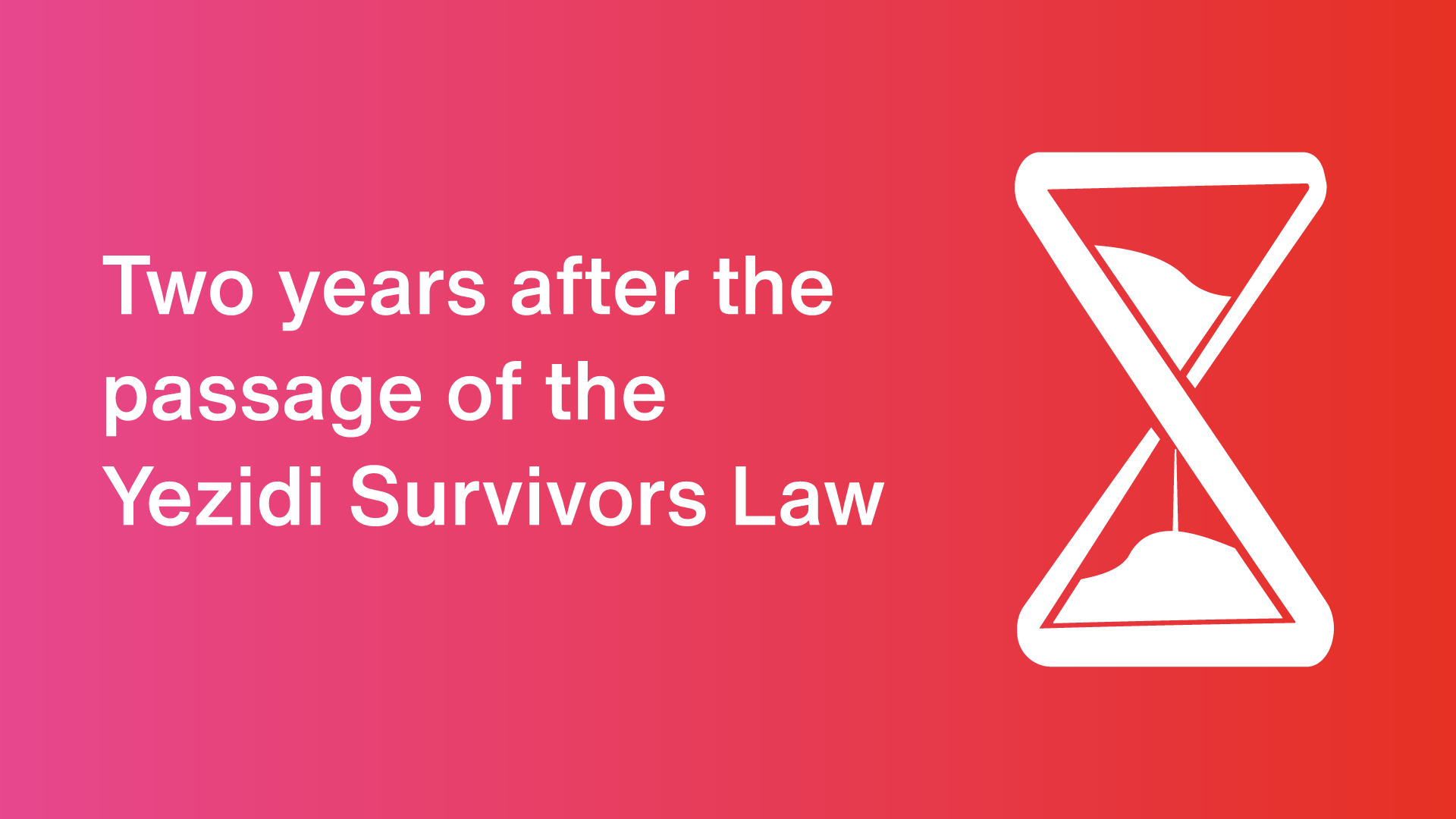
Two years after the passage of the Yezidi Survivors Law: SEED calls for the Government of Iraq to honor its obligations to protect and serve survivors of the ISIS conflict in Iraq
Erbil, Iraq – March 1, 2023: Today, as we mark the second anniversary of the Yezidi Survivors Law (YSL), widely believed to represent a significant milestone in Iraq’s post-conflict recovery, SEED recognizes the considerable progress made toward implementation, but stresses the need to overcome significant barriers that still threaten the prospect of reparations for survivors of the ISIS conflict.
Last September, the General Directorate of Survivors’ Affairs (GDSA), which currently has two offices in Mosul and Sinjar, began accepting survivor applications for the benefits available under the Yezidi Survivors Law. Since that time, thousands of survivors have reportedly applied, and the GDSA recently announced that an initial cohort of 420 eligible individuals, whose applications have been successfully processed, should begin receiving their monthly salaries in the coming days – two years after the law’s passage and almost nine years after the ISIS conflict erupted.
Despite this progress, implementation of the YSL has been beset by numerous challenges. Of particular concern is the decision by the Committee, established under Article 10 of the law, to require survivors to file a criminal complaint through the courts and submit relevant investigation documents in order for their applications to be considered and successfully processed. This procedure is not mandated within the law or its associated regulations, and requires survivors to navigate a cumbersome, invasive, and harmful process, which is proving prohibitive for those who would rather forfeit their reparations than risk further stigma and retraumatization. While appropriate evidence is needed to verify eligibility, the YSL was designed to remove barriers and provide a survivor-centered alternative to the typical process in order to preserve the right to remedy and reparations without discrimination and mitigate the risk of further harm.
At the highest level, the absence of a clear coordination mechanism between the federal and regional governments to support the law’s implementation has posed administrative barriers, with ongoing implications for access, information-sharing, and distribution of benefits. Additionally, the funding that was allocated for implementation of the YSL within the Emergency Law for Food Security and Development in 2022 falls short of estimates, and is not sufficient to sustain long-term reparation measures like monthly salaries for survivors, which have no definitive time horizon. This calls into question the viability of the compensation scheme to respond to all survivors and highlights the need to establish a dedicated, sustainable source of long-term funding within the federal budget.
At the time of its passage on March 1, 2021, the Yezidi Survivors Law was celebrated, both locally and abroad, as a groundbreaking example of deliberate legislative action to provide recognition, redress, and remedy for survivors of conflict-related sexual violence. However, its immense potential and promise is yet to be fully realized. For this to change, survivors must be placed at the center of the implementation process.
On the second anniversary of its passage, SEED calls upon the Government of Iraq and all implementing bodies mandated under the Yezidi Survivors Law to honor their obligations to protect and serve survivors by addressing barriers to reparations and ensuring that long-awaited benefits can be successfully delivered to those in need.
-ENDS-
SEED Foundation is a local NGO in the Kurdistan Region of Iraq, committed to protecting, empowering, and supporting the recovery of survivors of violence and others at risk. Our approach to this mission is integrative and holistic. We provide quality and comprehensive services, including mental health and psychosocial support (MHPSS), legal, protection, and shelter services; training, capacity building, and education for those working to protect and serve survivors; and policy and advocacy to strengthen laws, policies, practices and protections for vulnerable people, and to promote social change.
For more information, please contact: media@seedkurdistan.org
